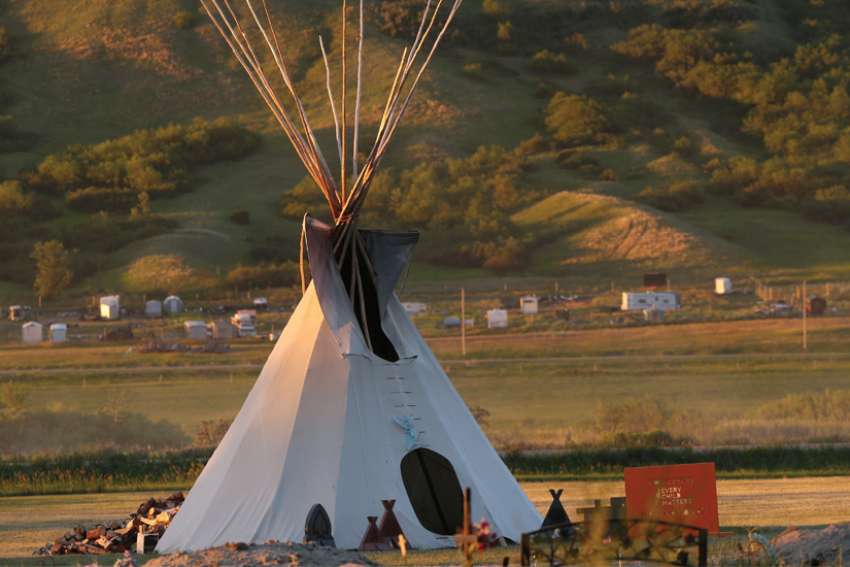From recent personal experience, I can attest that among the best are those that involve Indigenous grandmothers with PhDs who bring you face to face with your own snorty snap judgments and short sightedness.
Such was the case in early summer when I was interviewing Dr. Cathy Martin, an Indigenous leader from New Brunswick who at that time was running for the leadership of the Assembly of First Nations. I let fly a smidgen of the scorn I feel at every public gathering where mere lip service is paid to the Indigenous ownership of the particular locale. I don’t know what I expected her to say, but it wasn’t the corrective I got.
“I agree with you it’s a lot of lip service when they say it,” Dr. Martin said. “But at least they’re saying it. I can take you back 10 years. They weren’t saying it. At least now there’s acknowledgement.”
Well, uh, yeah, what about….
“Change is slow,” she said. “But I believe in positive change. We have to keep encouraging the positive. We can’t change the history, sad as it is. We can learn from it.”
That doesn’t mean, she emphasized, standing back passively and waiting for history to decide for itself what comes next.
“We need action. We need policy. We need change. But in order to continue with change, you have to apply the positive. It’s basic human psychology. If you encourage the positive you get more, and people will continue to go in that direction. So, you know, it’s very important that we applaud all efforts to recognize our rights.”
So … applause even though the inaugural National Day for Truth and Reconciliation on Sept. 30 seemed to have no clear purpose beyond giving federal public servants a paid holiday and the prime minister an opening to skip town and go (wait for it) surfing?
Applause even though a department store turned Orange Shirt Day from recognition of Indigenous residential school suffering into yet another “woke” shill campaign?
Applause even though Canadians went into paroxysms of sentimentality over unmarked graves of Indigenous kids last spring, then utterly ignored Indigenous issues during the election?
The shy egomaniacal journalist wants to snark: Give us a break. The humility-schooled listener hears instead Dr. Martin: “At least now there’s acknowledgement.”
Which strikes me as a secular variation on Cardinal Thomas Collins’ words when he called the National Day for Truth and Reconciliation a time for both repentance and hope.
“We need to look to the past, to acknowledge the truth, even if it is painful, as we do when we go to confession in our personal lives,” Cardinal Collins said during a Sept. 30 prayer service.
After all, what must we put on for confession? Not sack cloth and ashes but a “spiritual orange shirt,” so to speak, that acknowledges our culpability and our humility in front of history, personal and collective. In the ancient beautiful words of the Anglican Book of Common Prayer, we must, examining our consciences, acknowledge having “left undone those things which we ought to have done, and done those things which we ought not to have done.”
As Cardinal Collins pointed out, we, the gathered people of Canada, tore families apart during the Indian Residential School era.
Our best response is not to wallow in solipsistic guilt or rush around ki-yi-ying for instant karma to salve history’s brokenness. Humility demands we follow Dr. Cathy Martin’s advice and learn from history, then commit to measured, persistent, positive reconciling change.
Not all our steps will have clear direction, which the first National Day for Truth and Reconciliation lacked. Initiatives of the purest intention will fall prey to shill meisters of all stripes.
Even the shy egomaniacs of the world know it is acknowledgement, repentance, hope that will make us new.
(Stockland is publisher of Convivium.ca and a senior fellow with Cardus.)


